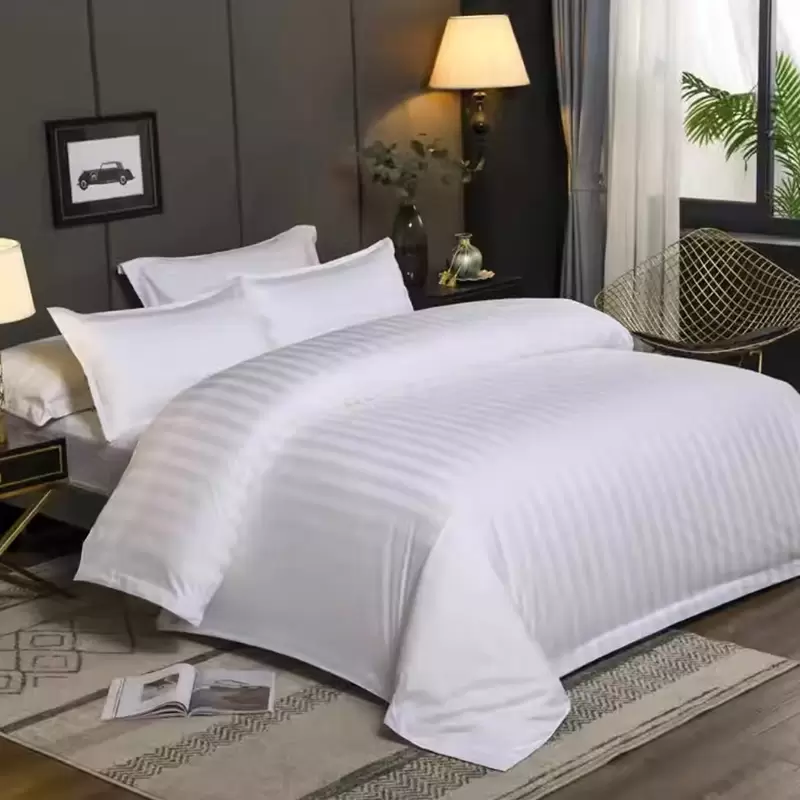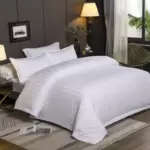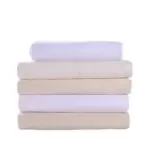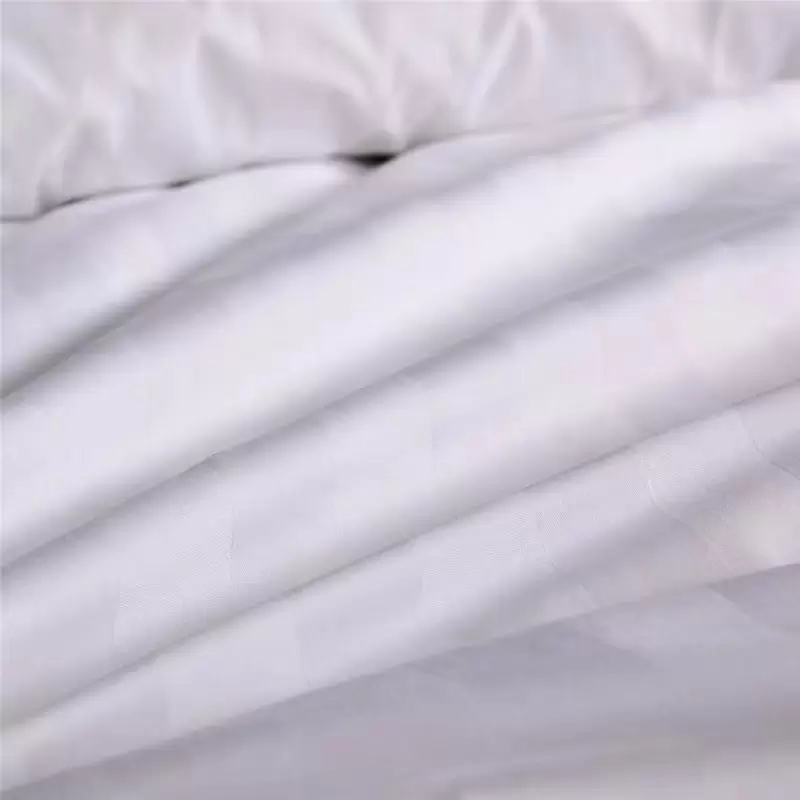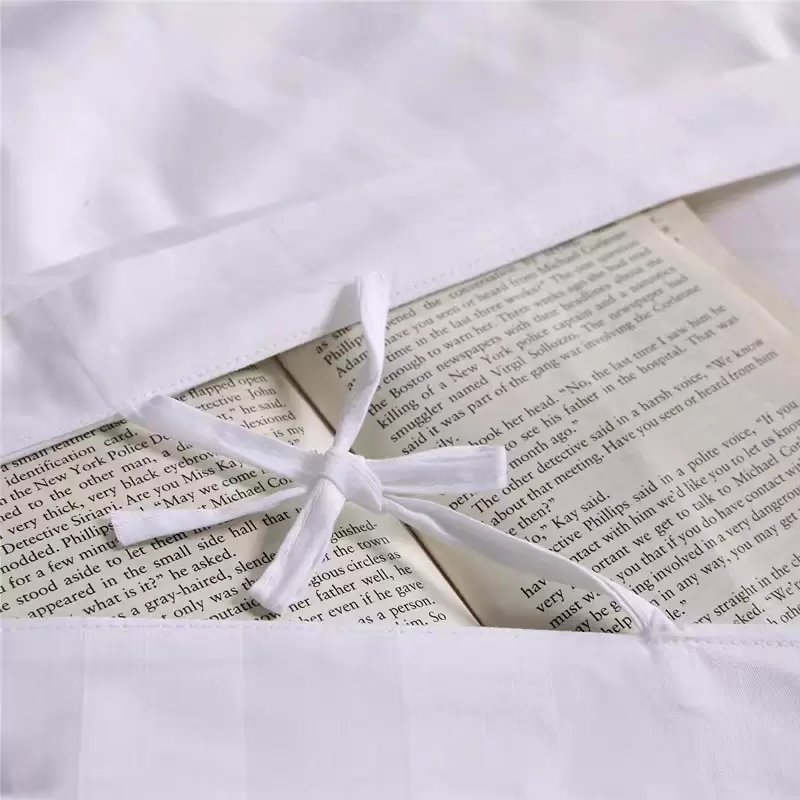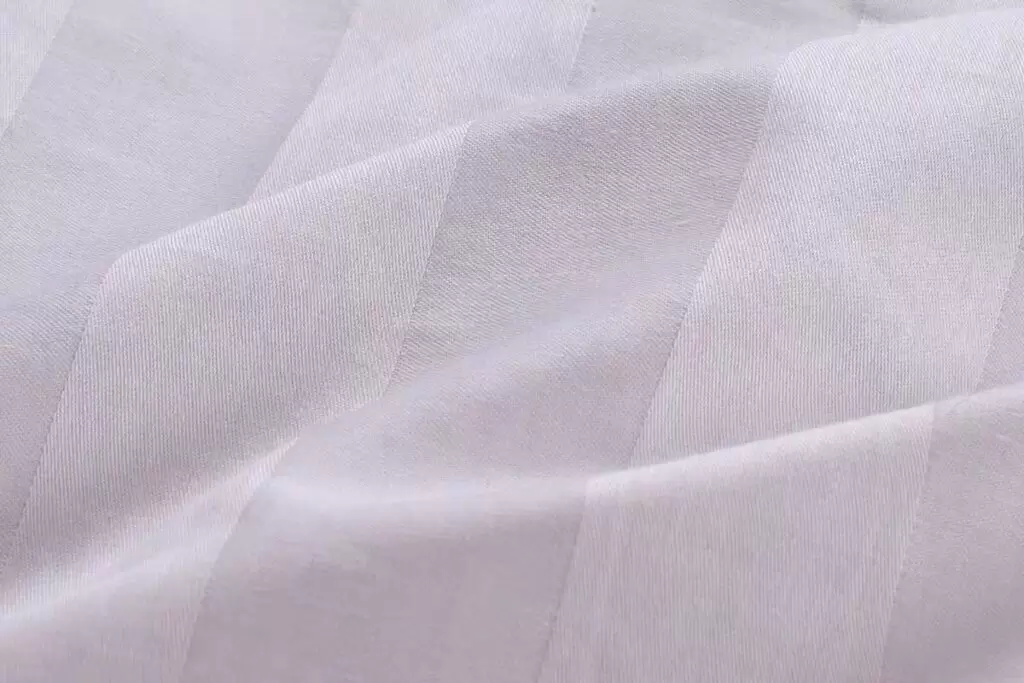Hotel Fabric
1、Selling points:
Comfort: The fabric should be soft, skin-friendly, breathable, etc., providing guests with a comfortable accommodation experience.
Durability: Hotel fabrics need to withstand frequent washing and use, so durability is an important selling point.
Aesthetics: The fabric's patterns, colors, and styles should be stylish and exquisite, adding decorative effects to the guest room.
Environmental friendliness: More and more guests pay attention to environmental protection, so the environmental friendliness of hotel fabrics is also an important selling point.
Customization: Hotels can customize fabrics according to their own brand image and guest room style to meet the personalized needs of guests.
Quality assurance: Hotel fabrics should meet strict quality standards to ensure that guests are provided with high-quality products.
Multifunctionality: Some hotel fabrics have anti-fouling, waterproof, fireproof, and other functions to meet the needs of different guests.
Innovativeness: The use of novel fabric materials, processes, or designs to bring unique competitive advantages for the hotel.
2、Parameter characteristics:
Fiber composition: The fiber composition of the fabric will affect its hand feel, durability, and comfort. Common fiber components include cotton, linen, silk, wool, polyester, nylon, etc.
Warp and weft density: Warp and weft density refers to the number of warp and weft yarns per unit area of the fabric, which affects the thickness, strength, and texture of the fabric. The higher the warp and weft density, the thicker and more durable the fabric.
Yarn count: Yarn count refers to the length of the yarn that can be spun from a unit weight of fibers. The higher the yarn count, the finer the yarn and the softer and smoother the fabric.
Weight: Weight refers to the weight per unit area of the fabric, which directly affects the thickness and texture of the fabric. The higher the weight, the thicker and more durable the fabric.
Elasticity: Some fabrics have a certain elasticity, making them easier to manage and maintain their shape. Elasticity is usually expressed as a percentage.
Color fastness: Color fastness refers to the ability of the fabric to retain color under conditions such as washing, abrasion, and exposure to sunlight. The higher the color fastness, the less likely the fabric is to fade.
Durability: Durability refers to the fabric's resistance to wear, stretching, and tearing. The higher the durability, the longer the service life of the fabric.
We accept custom yarn density and width.
3、Science popularization knowledge:
Hotel fabric refers to textiles used in hotel decoration and guest room supplies, such as bed sheets, quilt covers, pillowcases, curtains, carpets, etc. The selection of hotel fabric directly affects the comfort and experience of guests, therefore, the following points need to be paid attention to:
Fabric material: Hotel fabric comes in a wide variety of materials, including cotton, linen, silk, polyester, nylon, and more. Cotton fabric is soft, comfortable, and breathable, but prone to wrinkles and shrinkage; linen fabric has good durability and antibacterial properties, but the feel is relatively hard; silk fabric is soft, smooth, and shiny, but expensive; polyester, nylon and other synthetic fiber fabrics are wear-resistant, easy to manage, but less breathable and comfortable.
Fabric quality: Fabric quality mainly includes yarn density, warp and weft density, and thread count. The higher the yarn density, the finer and softer the fabric; the higher the warp and weft density, the thicker and more durable the fabric; the higher the thread count, the finer the yarn, the softer and more delicate the fabric.
Fabric maintenance and maintenance: Hotel fabric requires frequent cleaning and replacement, so it is necessary to choose fabric that is easy to maintain and care for. Generally, cotton and linen fabrics require dry cleaning or hand washing, while synthetic fiber fabrics can be machine washed.
4、Application Scenario:
Guest rooms: Hotel fabrics are an important part of guest room décor, including bed sheets, quilt covers, pillowcases, curtains, carpets, etc. These fabrics need to be comfortable, soft, durable, and easy to manage, providing guests with a comfortable accommodation experience.
Restaurants: Restaurants require the use of a large amount of fabric, such as tablecloths, napkins, chair covers, etc. These fabrics need to be durable, easy to clean, and stain-resistant to meet the frequent use and cleaning needs of restaurants.
Meeting rooms: Meeting rooms require the use of fabric to decorate conference tables, chairs, curtains, etc. These fabrics need to be solemn, generous, and durable to meet the formal occasion needs of the meeting room.
Spa centers: Spa centers require the use of comfortable, soft, and absorbent fabrics, such as towels, bathrobes, etc. These fabrics need to be soft, comfortable, and absorbent to provide guests with a comfortable spa experience.
Swimming pools: Swimming pools require the use of durable, water-proof, and stain-resistant fabrics, such as pool towels, pool chair covers, etc. These fabrics need to be durable, water-proof, and stain-resistant to meet the special needs of swimming pools.

